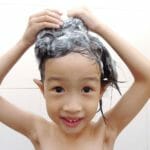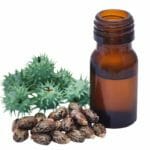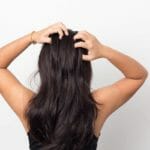Hair spa or keratin treatment, which is better?
At BeautyCaters, our expert team independently curates every recommended product. Purchases through our links may earn us a commission. Explore our transparent selection process.
Stuck between a hair spa and a keratin treatment? Both offer incredible benefits for your hair, but understanding their differences is crucial for making an informed decision. But girls, worry not for I present here the comparative analysis: “hair spa or keratin treatment, which is better”. So explore the pros and cons of both treatment and make your right choice.
- What is a hair spa?
- Benefits of hair spas
- Potential drawbacks of hair spa treatments
- Who should needs hair spas?
- What are the types of hair spa?
- What is keratin treatment?
- Benefits of keratin treatments
- Disadvantages of keratin treatment
- Who should needs keratin treatment?
- Types of keratin treatments
- Hair spa vs. Keratin treatment
- Final Word: Hair spa or keratin treatment, which is better?
What is a hair spa?

Frequent use of styling products can cause significant damage to hair. A hair spa is a rejuvenating treatment tailored to address these concerns, nourish, and revitalize your hair. As the name suggests, it offers a relaxing and therapeutic session to your hair and scalp, which help the hair to recover and restore its health and vitality.
Benefits of hair spas
Hair spas offer numerous benefits for those with colored hair, helping to maintain vibrant color, strengthen strands, and improve overall hair health. Here are the four benefits of hair spa:
- Rejuvenation: Hair spas provide a relaxing and nourishing experience for your hair.
- Treatment for Hair Issues: They address common problems like dryness, roughness, oily scalp, itchy scalp, and dandruff.
- Recovery from Chemical Damage: Hair spas can help repair and restore hair damaged by excessive styling products.
- Improved Hair Texture: Regular hair spa treatments can enhance the overall texture and appearance of your hair, making it smoother, softer, and more manageable.
- Stress Relief: The relaxing atmosphere and pampering techniques used in hair spas can help reduce stress and promote overall well-being.
- Boosted Confidence: Healthy, beautiful hair can boost your self-esteem and confidence.
Potential drawbacks of hair spa treatments
While hair spas offer numerous benefits, it’s important to be aware of the potential drawbacks before scheduling an appointment.
- Hair color fading: The chemicals used in hair spas can sometimes interact with hair color, leading to fading.So, consult with the hair spa professional to determine if the treatment is suitable and to minimize potential color loss.
- Increased Hair Fall: Some hair spa products may contain harsh chemicals that can irritate the scalp and contribute to hair loss. It’s essential to consult with a professional to determine if your hair and scalp are sensitive to any ingredients used in hair spa treatments.
- Exacerbated dandruff: A wrong hair spa treatment or the chemicals in hair spa products can interact with your scalp, triggering dandruff or worsening existing conditions. Consult with a professional to discuss your specific scalp concerns and choose a treatment that addresses dandruff while minimizing potential side effects.
- Comprehensive hair care: Relying solely on hair spas may not be sufficient for maintaining healthy hair. A balanced diet, regular exercise, and proper hair care practices are also essential.
- Time and cost: Hair spa treatments can be time-consuming and expensive, especially if frequent visits are required.
Also Read: How long does hair spa last?
Who should needs hair spas?
- Individuals with dry, rough, or damaged hair.
- Those who frequently color, bleach, straighten, or curl their hair.
- People seeking relaxation and stress relief.
- Those looking to improve the overall health and appearance of their hair.
What are the types of hair spa?
Hair spas offer a variety of treatments designed to address different hair problems. Let’s explore some of the most common types:
- Dandruff-control hair spa: This specialized treatment is designed to address dandruff, characterized by excessive flaking and itching. By addressing the underlying causes of dandruff, it help reduce visible flakes, soothe the scalp, and promote smoother, shinier hair. The treatment involves a deep cleansing session to remove product buildup and exfoliate the scalp, followed by specialized anti-dandruff treatments that target the root causes of dandruff.
- Hair thickening hair spa: Thinning hair, often caused by hair loss is a frustrating problem. A hair spa treatment specifically designed for hair thickening can be an effective solution. These treatments incorporate ingredients rich in omega-3 fatty acids, proven to stimulate hair follicles, strengthen hair strands, reduce hair loss, and improve overall hair density.
- Oily scalp hair spa: Oily scalp is a frustrating issue, leading to greasy hair, dandruff, and a lack of volume. A specifically designed hair spa is proved to an effective solution. These treatments regulate oil production, reduce greasiness, and improve the overall health of your hair.
- Hair rejuvenating hair spa: Chemical-treated and frequently color hair needs hair spa as a compulsory hair care regimen. Hair dyes and treatments damage the hair’s internal structure. Regular hair spa treatments offer a solution. It shields hair from the harmful effects of UV rays, pollution, and other environmental stressors and prevent further damage, preserving the integrity of colored hair.
What is keratin treatment?

Hair keratin treatment, also known as a Brazilian blowout, is a popular hair straightening method that involves infusion of keratin, a natural protein, into the hair. A chemical solution containing keratin is applied to the hair, penetrating the hair shaft and filling in gaps in the protein structure. This process helps to smooth the hair cuticle, reduce frizz, and create a straighter, more manageable appearance.
This treatment can be temporary or permanent, depending on the specific formulation and application technique used.
Benefits of keratin treatments
Keratin treatments offer several advantages for those seeking to improve the health and appearance of their hair. These include:
- Reduced frizz and flyaways: Keratin helps to smooth the hair cuticle, resulting in a sleek and polished look.
- Straighter hair: For those with curly or wavy hair, keratin treatments can significantly reduce curl patterns, creating straighter styles.
- Enhanced shine: The treatment helps to improve the natural luster and shine of the hair.
- Increased manageability: Keratin makes hair easier to style and brush, reducing tangles and knots.
- Long-lasting results: The effects of a keratin treatment can last for several months, providing a convenient and time-saving solution for maintaining straight hair.
- Increased manageability: Keratin makes hair easier to style and brush, reducing tangles and knots.
Disadvantages of keratin treatment
While keratin treatments offer many benefits, it’s important to consider the potential drawbacks before deciding if they’re right for you.
- Chemical exposure: Some keratin treatments contain formaldehyde or other chemicals that can be harmful if inhaled or absorbed through the skin. Prolonged exposure may pose health risks.
- Temporary results: The effects of keratin treatments are not permanent and gradually fade over time, typically lasting a few months. Regular touch-ups are required to maintain the desired results.
- Cost: Keratin treatments can be expensive, especially if you need frequent touch-ups. This may make them less budget-friendly for some individuals.
- Time commitment: The application process can be time-consuming, often taking several hours. This may not be convenient for those with busy schedules.
- Sensitivity and reactions: Some individuals may be sensitive to the chemicals in keratin treatments, leading to scalp irritation, itching, or redness. A patch test is recommended before undergoing the treatment.
- Post-treatment restrictions: After a keratin treatment, you may need to follow specific hair care routines, such as avoiding washing your hair for a certain period. This can be inconvenient for some individuals.
- Loss of curl: If you have naturally curly or wavy hair, a keratin treatment can temporarily reduce or eliminate your curls.
- Environmental impact: Some keratin treatments may contain chemicals that can be harmful to the environment. So, choose eco-friendly options whenever possible.
- Health and safety concerns: The long-term health effects of regular exposure to certain chemicals in keratin treatments are not fully understood. Prioritize your health and safety by carefully considering the risks and benefits.
Who should needs keratin treatment?
Keratin treatments are a popular choice for those seeking to improve the health and appearance of their hair. They are particularly effective for individuals with:
- Frizzy hair: Keratin helps to smooth the hair cuticle, reducing frizz and enhancing manageability.
- Damaged hair: The treatment can help repair damaged hair strands, leaving them stronger and healthier.
- Those who frequently style their hair: Keratin treatments can reduce the need for excessive blow-drying or straightening, helping to protect the hair from heat damage.
Types of keratin treatments
Keratin treatments offer a range of options to suit different hair types and desired results. Here are some of the most popular types:
- Brazilian keratin treatment: This well-known treatment involves applying a keratin-based solution and using a flat iron to seal in the keratin, resulting in straighter, smoother hair.
- Japanese keratin treatment: A more intense treatment that chemically straightens the hair, providing longer-lasting results.
- Moroccan keratin treatment: Incorporates argan oil for added nourishment and shine, while still reducing frizz and improving manageability.
Hair spa vs. Keratin treatment

Hair spa and hair keratin treatment are two popular treatments designed to improve hair health and appearance. While both offer benefits, they cater to different needs.
Hair spa is a luxurious treatment that involves a series of steps, including massage, steam, hair wash, and serum application. It provides a deep conditioning experience, leaving your hair soft, shiny, and hydrated. However, the effects of a hair spa are temporary and typically last for 4-8 washes, depending on your hair type.
Hair keratin treatment, on the other hand, is a more intensive process that involves infusing keratin protein into your hair. Keratin is a natural protein found in hair, and by replenishing it, the treatment helps to smooth the hair cuticle, reduce frizz, and improve manageability. The results of a keratin treatment can last for several months, making it a popular choice for those seeking long-lasting effects.
Hair keratin treatment typically ranges from 20,000 to 50,000 INR, influenced by the salon’s reputation, the type of keratin used, and the length and thickness of your hair.
Hair spa treatments are generally more affordable, with prices ranging from 600 to 5,000 INR. However, the cost can also vary based on the location of the salon, the specific services included, and the quality of the products used.
It’s important to research and compare prices from different salons in your area to find the best value for your budget. Additionally, consider the reputation of the salon and the experience of the stylists to ensure you receive high-quality results.
Final Word: Hair spa or keratin treatment, which is better?
The choice between hair spa and keratin treatment depends on your specific hair goals. If you’re looking for a quick and temporary fix to improve your hair’s appearance, a hair spa might be a good option. If you’re seeking a long-term solution to reduce frizz and enhance manageability, a keratin treatment could be the better choice.
Always consult a professional hairstylist before undergoing any hair treatment. They can assess your hair’s condition, recommend the best option, and help you avoid potential side effects or allergic reactions.










